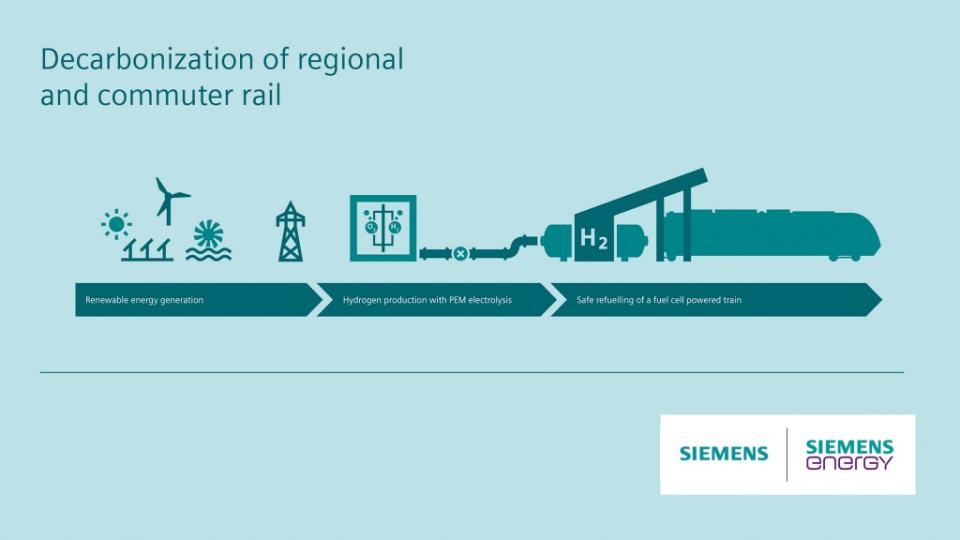Germany's national rail operator will experiment with hydrogen trains
The Mireo Plus H will go up to 373 miles at 100 MPH.
Germany’s national rail operator Deutsche Bahn (DB) has announced that it’s developing a hydrogen-powered train with an eye to replacing diesel trains, CNBC has reported. The firm is teaming with Siemens Mobility on a new train, called the Mireo Plus H, that will be powered by hydrogen fuel cells and lithium-ion batteries. It will travel between Tübingen, Horb and Pforzheim in the German state of Baden-Württemberg, with trials slated to start in 2024.
The Mireo Plus H will have a range of up to 600 km, or around 373 miles, and hit a maximum speed of about 100 MPH. Deutsche Bahn figures that the trial alone will stop about 330 tons of carbon dioxide from entering the atmosphere.
On top of the transportation element, Deutsche Bahn is also looking to develop and test hydrogen train infrastructure. To that end, it’s refitting one of its maintenance facilities to serve as a fueling and maintenance station for the train.
The company plans to create hydrogen by electrolysis, using electricity to split water into oxygen and hydrogen. While that process is fully green (depending on the source of the electricity), it’s highly inefficient compared to modern BEV (battery electric vehicle) technology. It’s also costly to transport and store hydrogen.
Still, hydrogen trains have been successfully tested and are gaining traction quickly in parts of Europe. As it stands now, Alstrom is already running commercial hydrogen train passenger service in Austria and has run successful trials in the Netherlands, as well. In addition, Alstom’s Coradia iLint hydrogen trains have successfully completed German trials and have been in regional passenger service in Germany since 2018.
The 2024 trials are a bigger deal, however, as DB is a national carrier and a successful test is key to its carbon-neutral plans. Currently, it operates 1,300 diesel trains in regional service and 40 percent of its 33,000 km rail network is not electrified, the company noted. “We need to bring our fossil fuel consumption down to zero,” said DB board member Sabina Jeschke. “Only then can DB be climate-neutral by 2050. By that point, we won’t have a single diesel-powered train operating in our fleet.”

 money
money 
